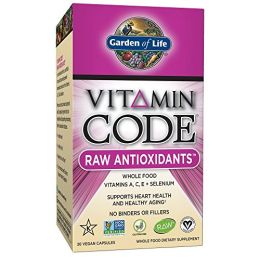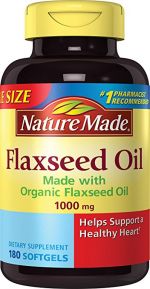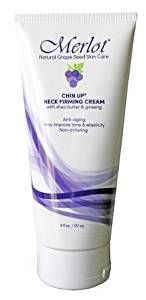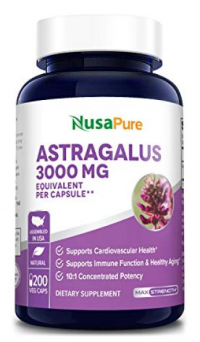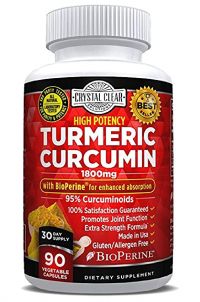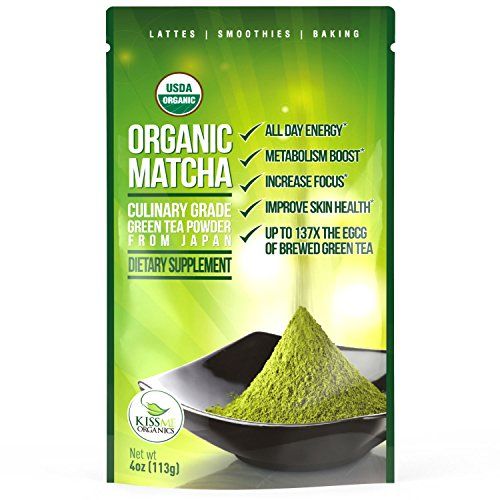Eating a healthy diet is a good way to improve your health, and by extension, increase your potential longevity. Certain types of plants produce bioactive compounds that can affect your cellular and molecular health. Though no herbs have been definitively proven to extend your lifespan, some do have beneficial properties that can help to slow the aging process.
Telomeres, the caps on the ends of your chromosomes, get shorter with each round of cell replication. Telomere length is one of the most accurate measures of biological age. Shorter telomeres are associated with aging and age-related diseases.

Healthy Muscle Recovery and Antioxidant-Rich Herbs
Reactive oxygen species, which are produced primarily as a byproduct of respiration and energy production in your cells, are highly volatile compounds. They can inflict damage on many types of molecules in your cells, including lipids, proteins, and DNA. DNA damage from these oxygen radicals can lead to mutations, causing cellular dysfunction. Accumulation of oxidative damage is thought to be one of the lead causes of aging.1
Many types of herbs and essential oils are rich sources of antioxidants and compounds that help with healthy muscle recovery. Nuts (especially walnuts), fruits (especially berries and citrus fruits), and vegetables (such as onions and broccoli) are good sources of antioxidant molecules such as ascorbic acid (vitamin C), tocopherols (vitamin E), carotenoids, and flavonoids. Spice-bearing herbs also contain beneficial polyphenols with such activities.1,2,3

Plant Sources of Omega-3 Fatty Acids
Omega-3 fatty acids have great muscle recovery effects and are well-known for providing a wide range of health benefits. Nerve, joint, cognitive, immune, skin, ocular, and cardiovascular health can all benefit from omega-3 fatty acids, and supplementing with them can improve your biological age.4,5 There are three types of these “healthy fats” that you can obtain through your diet: α-linolenic acid (ALA), docosahexaenoic acid (DHA), and eicosapentaenoic acid (EPA). DHA and EPA are typically obtained by eating fish but can also be obtained through marine algae supplements. ALA is shorter than DHA and EPA, and though it has fewer health functions that DHA and EPA, it can be converted to these other two omega-3 fatty acids in the body.6 Many types of plants are good sources of ALA, including:
- Flaxseed
- Canola oil
- Walnuts and other nuts
- Soybeans and soy products
- Chia seeds
- Hemp seeds

Red Grape Skin Extract
The longevity-promoting effects of red grape skin were first observed in the “French Paradox”: people consuming a typical French diet rich in cheese and other sources of saturated fats still lived rather long lives. Eventually, the age-extending component was determined to be resveratrol, a phytochemical present in the skin of red grapes and in high concentrations in red wine, which features prominently in the French diet. Red wine is indeed one way to consume high amounts of this natural phenol, but it can also be obtained through supplements containing red grape skin or blueberry skin extract.2

Astragalus Root
Astragalus propinquus (Mongolian milkvetch) is a perennial flowering plant that has been used in traditional Chinese medicine for centuries to promote immune function. It produces several beneficial phytochemicals, including flavonoids, terpenoids, and saponins. Extracts from its roots have been found to have many health benefits, including healthy muscle recovery, antioxidant benefits, and in general promoting and supporting good health including cardiovascular health, and supporting healthy immune function. Accordingly, initial clinical trials suggest taking astragalus root can promote longevity.7

Curcumin
Curcumin, a component of curry powder that is derived from turmeric root, is bright yellow in color and contains many beneficial phytochemicals. It contains a unique array of polyphenols called curcuminoids. These curcuminoids are very good at preventing lipid peroxidation and the accumulation of oxidative damage. It also promotes healthy muscle recovery.2,3
Curcumin has a low bioavailability, meaning it is absorbed poorly into your bloodstream. Including the pepper compound piperine in curcumin supplements has been shown to improve the bioavailability of curcumin, though it may cause indigestion in some individuals. Currently, clinical trials are investigating lapidated curcumin compounds, which may boost the bioavailability and health benefits of curcumin many times.2,3

Green Tea
Tea has been a popular beverage for centuries, before which it was used as a medicinal drink. Tea leaves contain the polyphenol epigallocatechin gallate (EPGC), which animal studies have shown has life-extending properties. Green tea contains an especially high concentration of EPGC. Though not yet well-studied in humans, green tea extract is thought to help with healthy weight maintenance, and to help stay healthy in general. 2
[1] Sadowska-Bartosz I, Bartosz G. 2014. “Effect of antioxidants supplementation on aging and longevity.” Biomed Res Int. 2014:404680. https://www.ncbi.nlm.nih.gov/pubmed/24783202
[2] Si H, Liu D. 2014. “Dietary antiaging phytochemicals and mechanisms associated with prolonged survival.” J Nutr Biochem. Jun; 25(6):581-591. https://www.ncbi.nlm.nih.gov/pmc/articles/PMC4019696/
[3] Joseph J, Cole G, Head E, Ingram D. 2009. “Nutrition, Brain Aging, and Neurodegeneration.” J Neurosci. Oct; 29(41):12795-12801. http://www.jneurosci.org/content/29/41/12795.long
[4] NCCIH. 2018. NIH, Bethesda, MD. “Omega-3 Supplements: In Depth.” https://nccih.nih.gov/health/omega3/introduction.htm#hed4
[5] Swanson D, Block R, Mousa SA. 2012. Adv Nutr. Jan; 3(1):1-7. “Omega-3 Fatty Acids EPA and DHA: Health Benefits Throughout Life.” https://www.ncbi.nlm.nih.gov/pmc/articles/PMC3262608/
[6] Davis BC, Kris-Etherton PM. 2003. Am J Clin Nutr. Sep; 78(3 Suppl):640S-646S. “Achieving optimal essential fatty acid status in vegetarians: current knowledge and practical implications.” https://www.ncbi.nlm.nih.gov/pubmed/12936959
[7] Li X, Qu L, Dong Y, Han L, Liu E, Fang S, Zhang Y, Wang T. 2014. “A review of recent research progress on the astragalus genus.” Molecules. Nov 17; 19(11):18850-18880. https://www.mdpi.com/1420-3049/19/11/18850
Search the blog
Article Categories
- All Articles (95)
- Rating Charts (1)
- Beauty & Skincare (17)
- FAQ (0)
- Hair Care (9)
- Health & Wellness (12)
- Anti-Aging (4)
- Kid's Health (0)
- Makeup (2)
- Men's Health (2)
- Oral Care (3)
- Sunscreen (7)
- Skin Tools & Treatments (10)
- Supplements (26)
- Videos (0)


